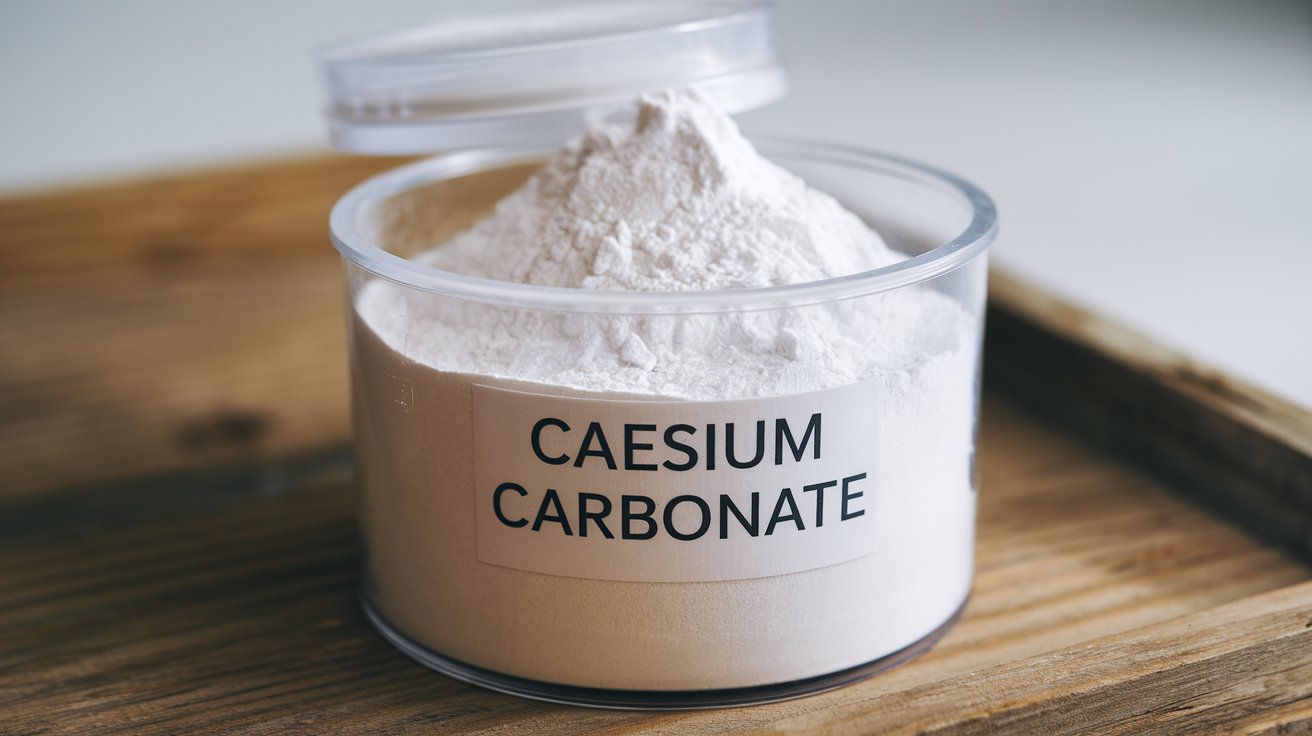
Caesium Carbonate might sound like a mouthful, but it's a fascinating compound with a variety of uses. What is Caesium Carbonate? It's a chemical compound with the formula Cs2CO3, known for its high solubility in water and its role in organic synthesis. This compound is often used in the pharmaceutical industry, electronics, and even in the creation of special glass. Its unique properties make it a valuable tool for chemists and engineers alike. Whether you're a student, a professional, or just curious, learning about Caesium Carbonate can open up a world of interesting facts and applications. Ready to dive in? Let's explore 40 intriguing facts about this versatile compound!
Key Takeaways:
- Caesium carbonate is a versatile compound used in organic synthesis and electronics, with unique properties and historical significance. It requires careful handling and responsible environmental practices.
- From its role in organic reactions to its intriguing properties, caesium carbonate offers a fascinating blend of chemistry, history, and potential future applications.
What is Caesium Carbonate?
Caesium carbonate is a chemical compound with the formula Cs2CO3. It is a white, crystalline powder that is highly soluble in water. This compound is used in various applications, from organic synthesis to electronics. Let's dive into some fascinating facts about caesium carbonate.
-
Chemical Formula: The chemical formula for caesium carbonate is Cs2CO3.
-
Appearance: It appears as a white, crystalline powder.
-
Solubility: Caesium carbonate is highly soluble in water, making it useful in many chemical reactions.
-
Molar Mass: The molar mass of caesium carbonate is approximately 325.82 g/mol.
-
Melting Point: It has a melting point of around 610°C (1130°F).
Historical Background
Understanding the history of caesium carbonate can provide insights into its development and applications.
-
Discovery of Caesium: Caesium was discovered in 1860 by Robert Bunsen and Gustav Kirchhoff.
-
First Synthesis: The first synthesis of caesium carbonate occurred shortly after the discovery of caesium.
-
Name Origin: The name "caesium" comes from the Latin word "caesius," meaning sky blue, due to the blue lines in its emission spectrum.
-
Early Uses: Initially, caesium compounds were used in research and spectroscopy.
-
Modern Applications: Today, caesium carbonate is used in various fields, including organic synthesis and electronics.
Applications in Organic Synthesis
Caesium carbonate plays a significant role in organic synthesis, acting as a base in many reactions.
-
Base in Reactions: It is commonly used as a base in organic reactions, such as the synthesis of pharmaceuticals.
-
Catalyst: Caesium carbonate can act as a catalyst in certain chemical reactions.
-
Nucleophilic Substitution: It is used in nucleophilic substitution reactions to replace halides with other nucleophiles.
-
Aldol Reactions: Caesium carbonate is employed in aldol reactions to form carbon-carbon bonds.
-
Esterification: It can be used in esterification reactions to produce esters from acids and alcohols.
Role in Electronics
Caesium carbonate has found applications in the electronics industry due to its unique properties.
-
Photovoltaic Cells: It is used in the production of photovoltaic cells for solar panels.
-
OLEDs: Caesium carbonate is a component in organic light-emitting diodes (OLEDs).
-
Semiconductors: It is used in the manufacturing of semiconductors.
-
Thin Films: Caesium carbonate is applied in the creation of thin films for electronic devices.
-
Battery Technology: It is being researched for potential use in advanced battery technologies.
Safety and Handling
Handling caesium carbonate requires certain precautions due to its chemical properties.
-
Toxicity: Caesium carbonate is considered to have low toxicity, but it should still be handled with care.
-
Protective Gear: When handling caesium carbonate, wearing gloves and safety goggles is recommended.
-
Storage: It should be stored in a cool, dry place, away from moisture.
-
Inhalation Risks: Inhaling caesium carbonate dust can cause respiratory irritation.
-
Skin Contact: Direct skin contact may cause irritation, so washing hands after handling is important.
Environmental Impact
Understanding the environmental impact of caesium carbonate is crucial for its responsible use.
-
Water Solubility: Its high solubility in water means it can easily disperse in aquatic environments.
-
Biodegradability: Caesium carbonate is not biodegradable, so it can persist in the environment.
-
Ecotoxicity: It has low ecotoxicity, but large quantities can still affect aquatic life.
-
Waste Disposal: Proper disposal methods should be followed to prevent environmental contamination.
-
Regulations: There are regulations in place to control the use and disposal of caesium carbonate.
Interesting Facts
Here are some intriguing tidbits about caesium carbonate that you might not know.
-
Flame Test: Caesium compounds produce a blue-violet flame when burned.
-
Radioactive Isotopes: Caesium has several radioactive isotopes, but caesium carbonate itself is not radioactive.
-
Space Exploration: Caesium ions are used in ion propulsion systems for spacecraft.
-
Medical Uses: Caesium compounds are being studied for potential use in cancer treatment.
-
Geological Studies: Caesium is used in geological studies to date rocks and minerals.
Fun Facts
Let's wrap up with some fun and quirky facts about caesium carbonate.
-
Soft Metal: Caesium, the metal from which caesium carbonate is derived, is so soft it can be cut with a knife.
-
Liquid Metal: Caesium is one of the few metals that is liquid near room temperature.
-
Atomic Clocks: Caesium atoms are used in atomic clocks, which are incredibly accurate.
-
Color: Pure caesium metal has a golden hue, unlike most other metals.
-
Density: Caesium is one of the densest naturally occurring elements.
The Final Word on Caesium Carbonate
Caesium carbonate is a fascinating compound with a wide range of applications. From its role in organic synthesis to its use in electronics, this chemical proves its worth in various fields. Its unique properties, like high solubility in water and ability to act as a strong base, make it indispensable in many industrial processes. Understanding these facts can help appreciate the versatility and importance of caesium carbonate in modern science and technology. Whether you're a student, a professional, or just curious, knowing about caesium carbonate adds a valuable piece to your knowledge puzzle. So next time you encounter this compound, you'll have a deeper understanding of its significance and uses. Keep exploring and learning about the amazing world of chemistry!
Frequently Asked Questions
Was this page helpful?
Our commitment to delivering trustworthy and engaging content is at the heart of what we do. Each fact on our site is contributed by real users like you, bringing a wealth of diverse insights and information. To ensure the highest standards of accuracy and reliability, our dedicated editors meticulously review each submission. This process guarantees that the facts we share are not only fascinating but also credible. Trust in our commitment to quality and authenticity as you explore and learn with us.


